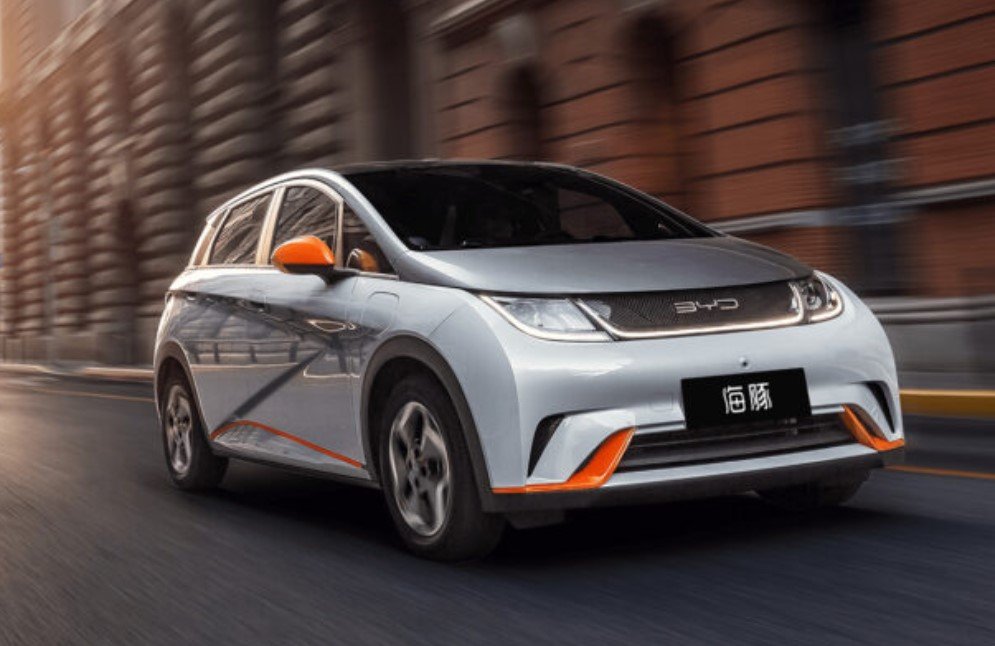The electric vehicle (EV) industry is witnessing a major breakthrough as the first mass-produced EV with a sodium-ion battery is unveiled by JAC Motors, a Chinese automaker backed by Volkswagen. The new EV, named Yiwei, is expected to hit the road in January 2023, marking a milestone for the development of sodium-ion battery technology.
A sodium-ion battery is a type of rechargeable battery that uses sodium ions as the charge carrier, instead of lithium ions. Sodium is abundant, cheap, and environmentally friendly, making it an attractive alternative to lithium, which is scarce, expensive, and has a high environmental impact.
Sodium-ion batteries have several advantages over lithium-ion batteries, such as:
- Longer lifespan: Sodium-ion batteries can withstand more cycles of charging and discharging without losing capacity, which means they can last longer and reduce the need for battery replacement.
- Enhanced safety: Sodium-ion batteries are less prone to overheating, catching fire, or exploding, which are common risks associated with lithium-ion batteries. This improves the safety of EVs and reduces the potential hazards for drivers and passengers.
- Better performance: Sodium-ion batteries can operate at a wider range of temperatures, which means they can work well in cold or hot climates. They also have a higher power density, which means they can deliver more power in a shorter time, enabling faster acceleration and higher speed for EVs.

How Does the Yiwei Compare to Other EVs?
The Yiwei is the first EV to use a sodium-ion battery developed by Hina Battery, a Beijing-based startup. The battery pack has a capacity of 25 kWh and an energy density of 120 Wh/kg, which is comparable to the lithium iron phosphate (LFP) batteries used by some EVs, such as the Tesla Model 3.
The Yiwei has a range of 252 km on a single charge, which is sufficient for urban commuting and short trips. It also supports fast charging of 3C to 4C, which means it can be fully charged in about an hour. The Yiwei is based on the Sehol E10X model, which is a compact SUV with a spacious interior and a sleek design.
The Yiwei is expected to have a competitive price, as sodium-ion batteries are cheaper to produce than lithium-ion batteries. The exact price and launch date of the Yiwei have not been announced yet, but JAC Motors has said that it will be available in January 2023.
What are the Challenges and Opportunities for Sodium-Ion Batteries?
Sodium-ion batteries are still a relatively new technology, and they face some challenges and limitations, such as:
- Lower energy density: Sodium-ion batteries have a lower energy density than lithium-ion batteries, which means they can store less energy per unit weight or volume. This limits the range and performance of EVs that use sodium-ion batteries, and makes them less suitable for long-distance travel or heavy-duty vehicles.
- Scalability and reliability: Sodium-ion batteries are still in the early stages of mass production and commercialization, and they need to prove their scalability and reliability in the market. They also need to meet the standards and regulations of different countries and regions, and overcome the technical and logistical barriers of distribution and installation.
- Competition and innovation: Sodium-ion batteries are not the only alternative to lithium-ion batteries, and they face competition from other emerging technologies, such as solid-state batteries, lithium-sulfur batteries, and hydrogen fuel cells. These technologies may offer higher energy density, lower cost, or better safety than sodium-ion batteries, and they may attract more investment and innovation from the EV industry.
Despite these challenges, sodium-ion batteries also have many opportunities and potentials, such as:
- Market demand and growth: The global EV market is growing rapidly, and there is a huge demand for more affordable, sustainable, and efficient batteries. Sodium-ion batteries can meet this demand and capture a large share of the market, especially in developing countries and regions where sodium is more abundant and accessible than lithium.
- Environmental and social benefits: Sodium-ion batteries can reduce the environmental and social impacts of battery production and consumption, such as greenhouse gas emissions, water pollution, land degradation, and human rights violations. Sodium-ion batteries can also promote the circular economy and the recycling of battery materials, and create more jobs and income for local communities.
- Technological advancement and collaboration: Sodium-ion batteries can stimulate more technological advancement and collaboration in the EV industry, as they require more research and development, testing and evaluation, and integration and optimization. Sodium-ion batteries can also foster more cooperation and partnership among different stakeholders, such as battery manufacturers, EV makers, governments, and consumers.
The first EV with a sodium-ion battery is a significant achievement for the EV industry and a promising sign for the future of battery technology. Sodium-ion batteries have many advantages over lithium-ion batteries, and they can make EVs more affordable, sustainable, and efficient. Sodium-ion batteries also face some challenges and limitations, but they also have many opportunities and potentials. Sodium-ion batteries may not replace lithium-ion batteries completely, but they may complement them and create more diversity and innovation in the EV market.
